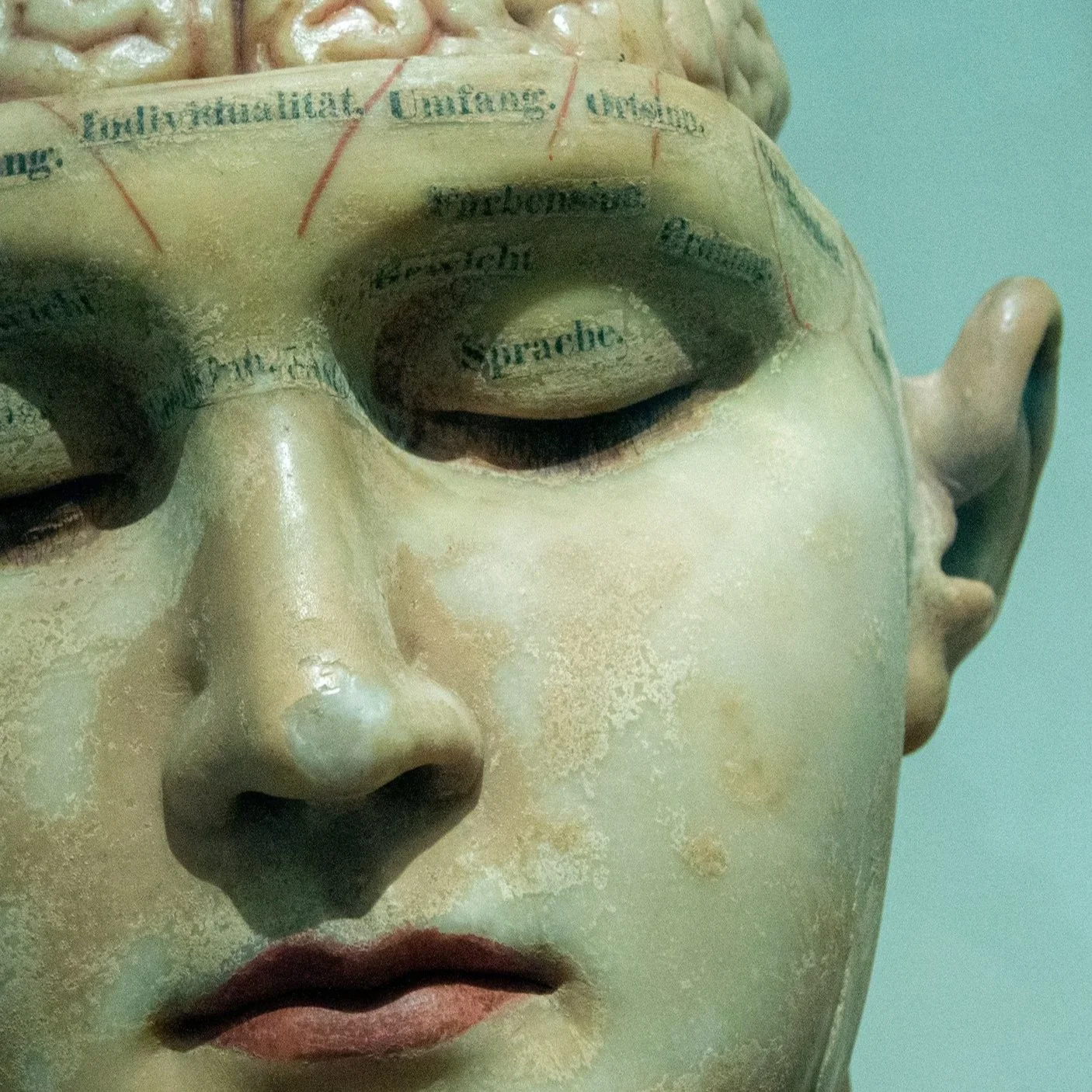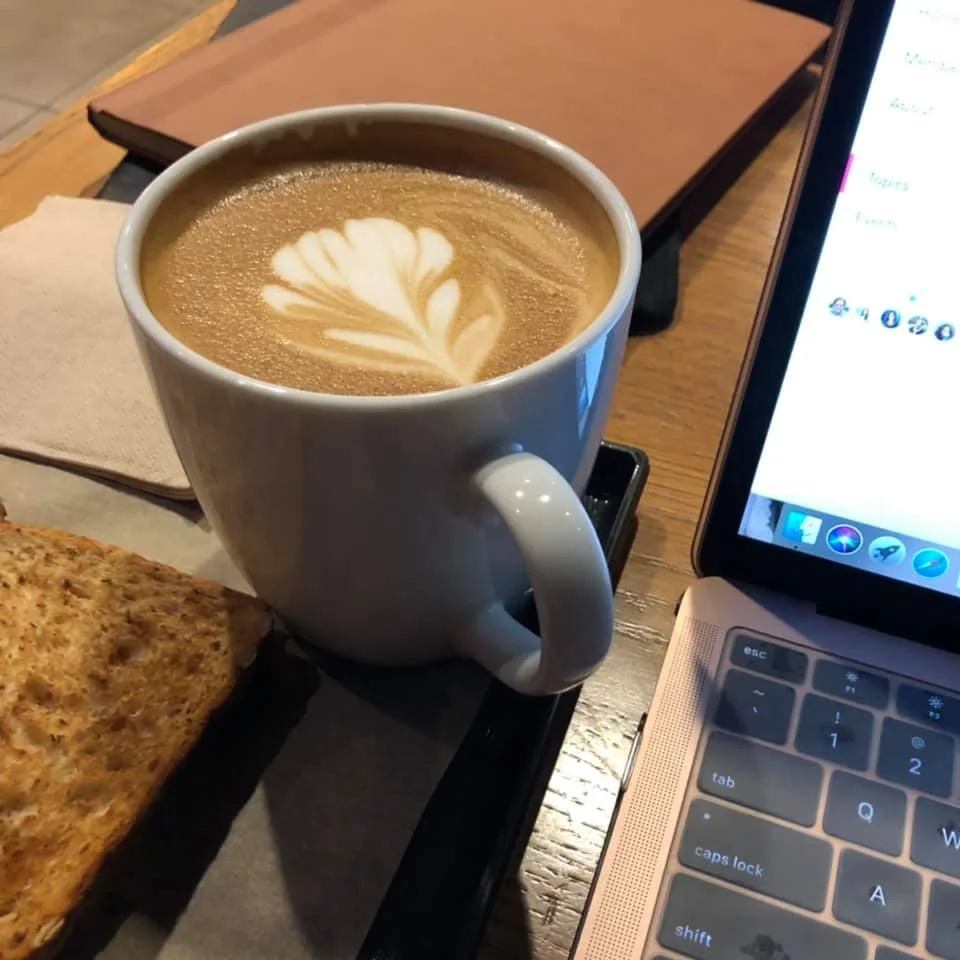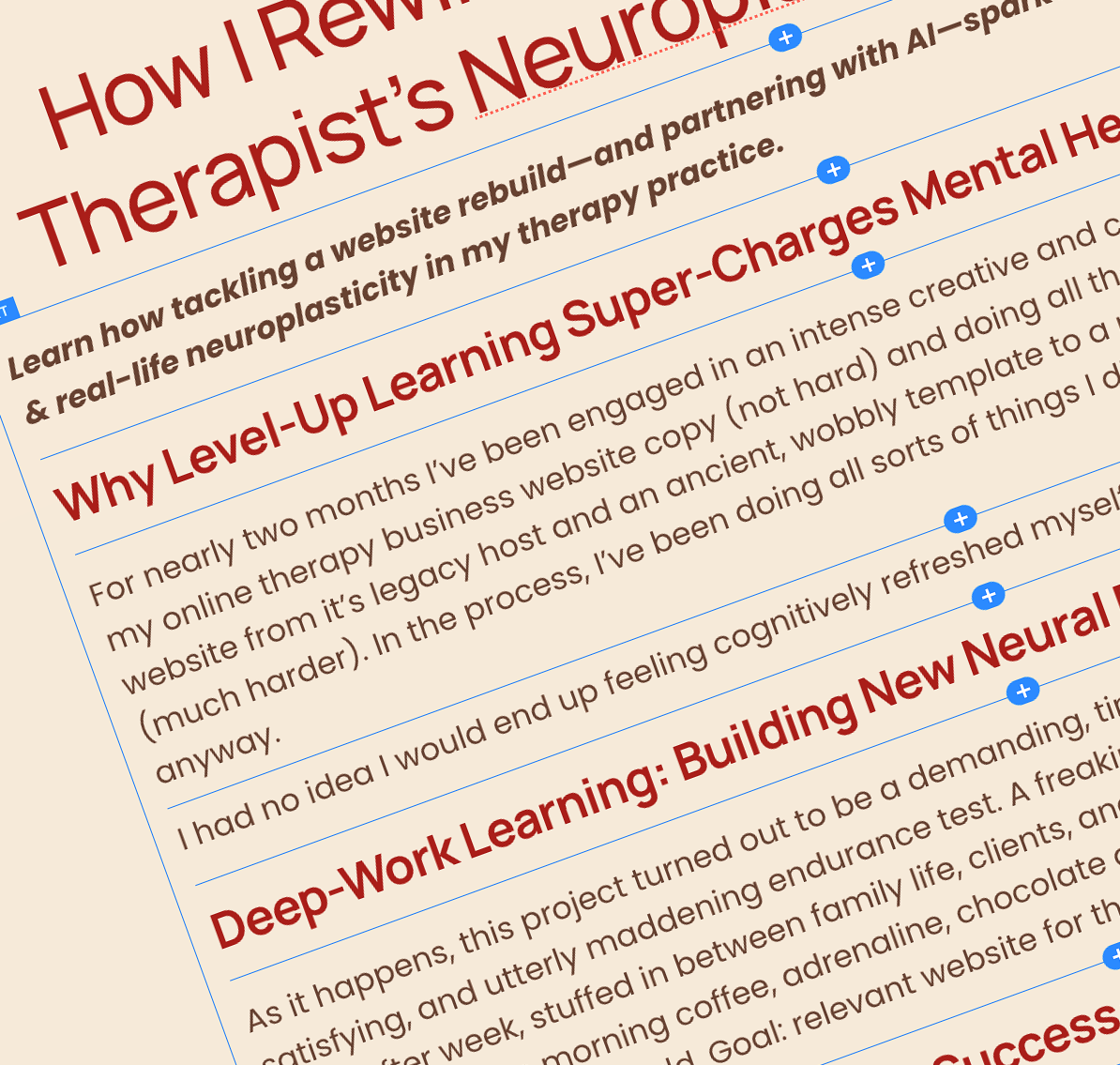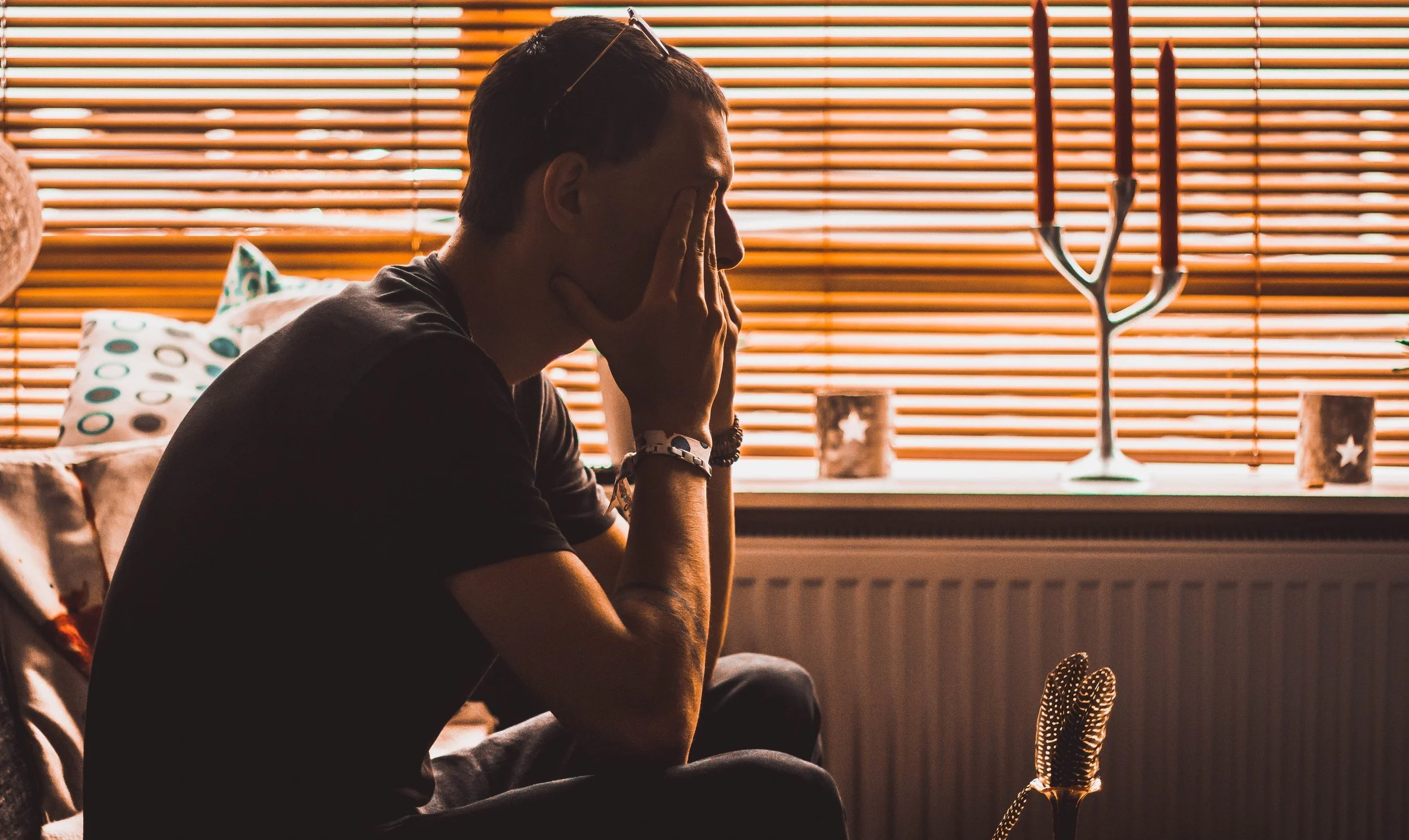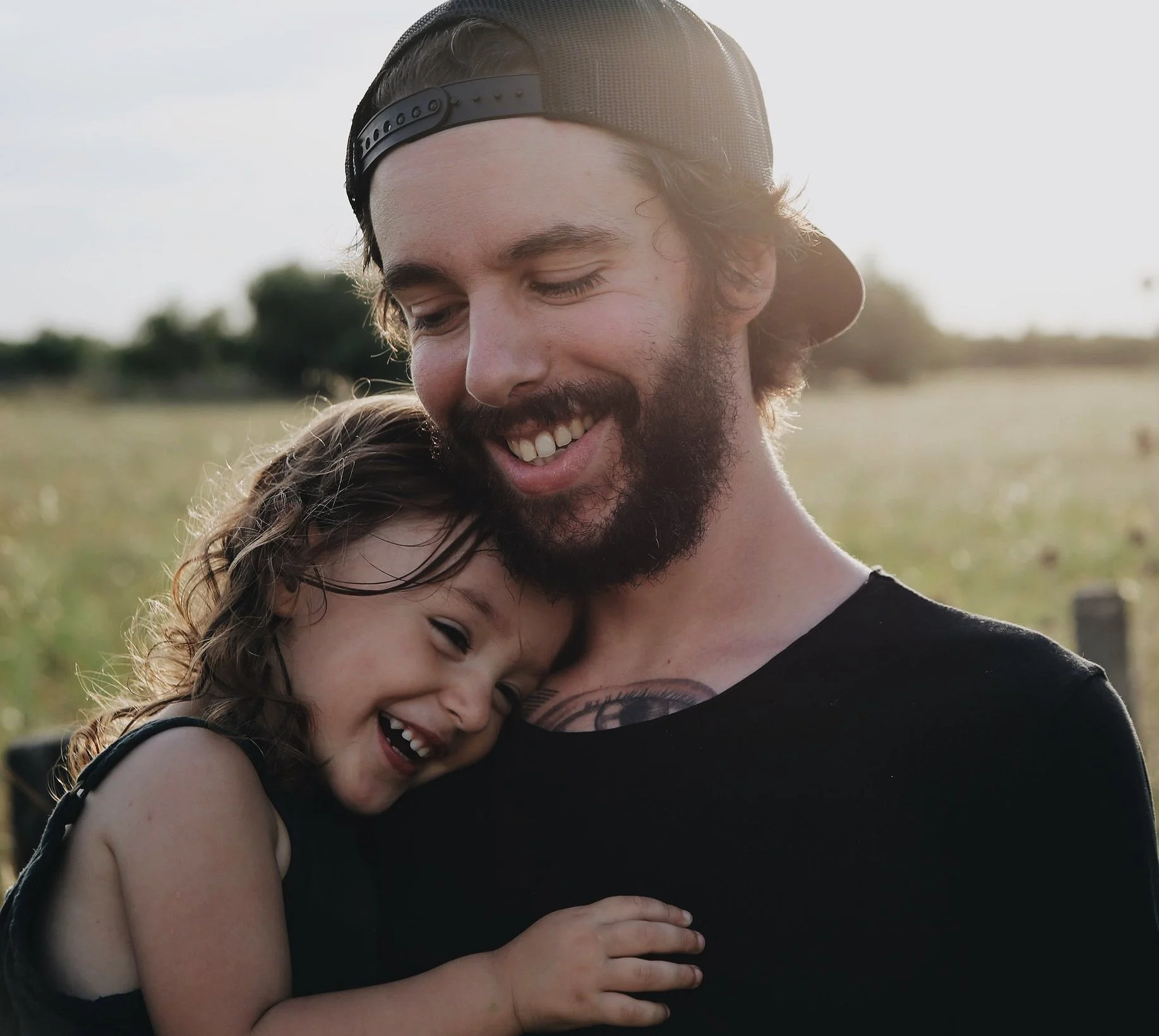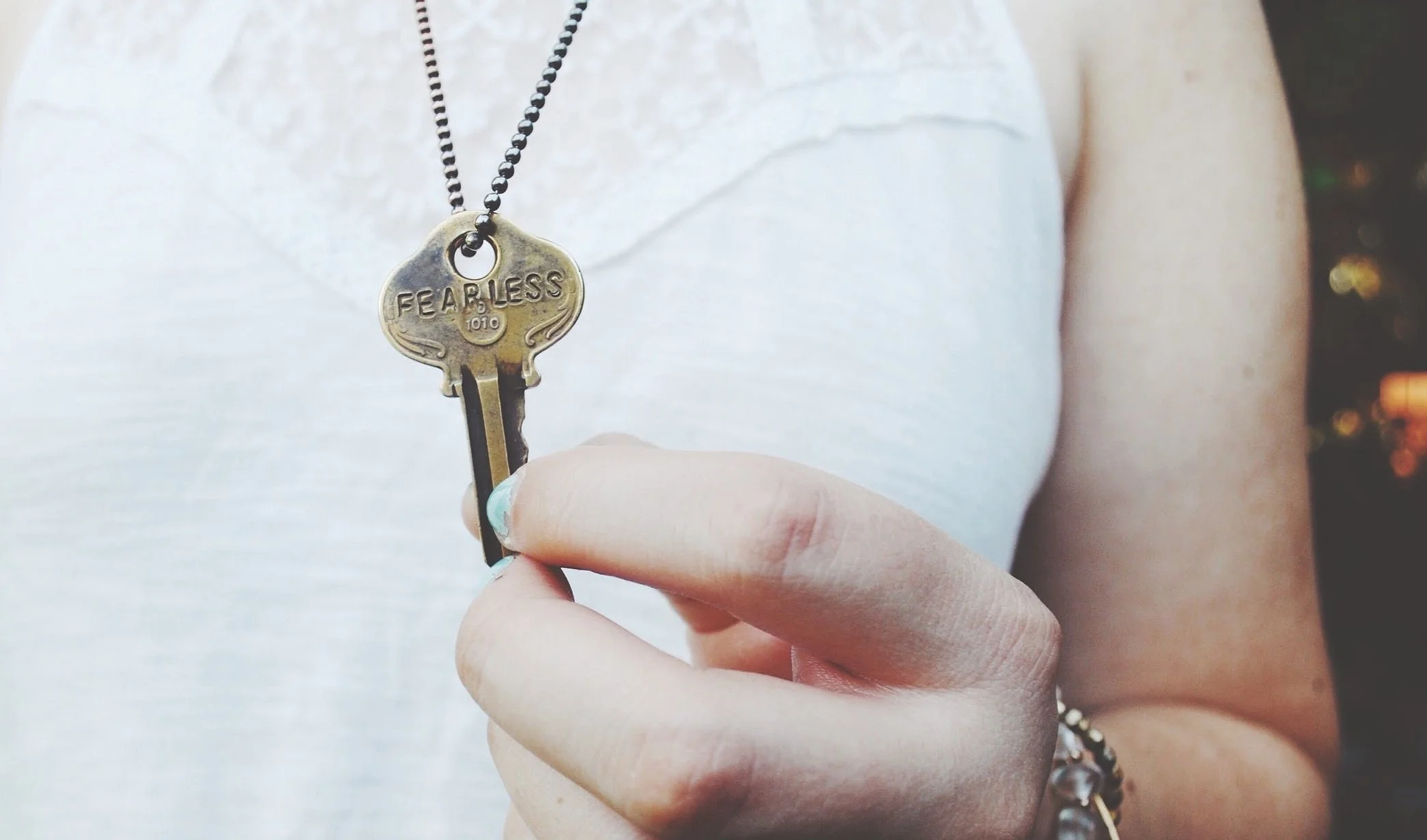
The Blog—Real-life riffs on anxiety, resilience, and being fully present
Looking for the blog? You found it—let’s dig in
I’m Victoria Wallace Schlicht—California-licensed Marriage & Family Therapist and certified Somatic Experiencing® Practitioner—something like a nervous-system whisperer minus the white cowboy hat..
I help anxious, high-functioning adults ditch the “I’m broken” story and find steadier ground. Let’s be honest, nearly everyone you know has either experienced high anxiety or brushed up against it—and how could we not? We’re living in a world that’s spinning faster than we were built to handle. Over-functioning is wearing us out.
We need better tools and a fresh perspective. Good news: I’ve got a stack of both, and I love to share them.
Welcome to my bully pulpit. Each post unpacks the science, stories, and somatic hacks that tame anxious spirals, increase self-regulation, and build real resilience.
Ready for deeper work? Get the scoop on my all-online California practice here.
How I Rewired My Brain in 51 Days—A Therapist’s Neuroplasticity Experiment
A 51-day website rebuild (with a little AI help) sparked fresh dopamine, new neural pathways, and a therapist’s real-life lesson in adult neuroplasticity.
Learn how tackling a website rebuild—and partnering with AI—sparked fresh synapses, dopamine hits & real-life neuroplasticity in my therapy practice.
Why level-up learning super-charges mental health (and websites!)
Victoria Wallace Schlicht
For nearly two months I’ve been engaged in an intense creative and cognitive learning curve. Freshening my online therapy business website copy (not hard) and doing all the tasks associated with moving my website from its legacy host and an ancient, wobbly template to a new and higher functioning home (much harder). In the process, I’ve been doing all sorts of things I didn’t know how to do and doing them anyway.
Somehow, I had no idea I would end up feeling cognitively refreshed myself.
Deep-work learning: building new neural pathways
As it happens, this project turned out to be a demanding, time consuming, exhilarating, exhausting, energizing, satisfying, and utterly maddening endurance test. A freakin’ marathon of 6-12 hour days, almost every day, week after week, stuffed in between family life, clients, and a water leak in our abode. I was obsessed and powered by one morning coffee, adrenaline, chocolate at midnight (I know, I know!), and the sheer drive for survival in a chaotic world. Goal: a relevant website for the modern age, or bust.
From Squarespace flops to success: growth-mindset in action
I went from a platform anyone could use—or at least one I understood—to Squarespace, which I’d poked at at least four times in the last ten years, but could never make any sense of the system. It’s definitely not intuitive for this Gen Jones psychotherapist. This was evidenced by the startling discovery of three prior design attempts waiting for me when I logged into Squarespace in June. They consisted of one page each and a headline or two. Squarespace and I didn’t speak the same language. In the past, when I faced off with Squarespace, I felt overwhelmed and sluggish. Slow. It was if I could feel my brain cells contracting in the face of all the great unknown. Nothing I tried worked the way I expected it to.
Victoria Wallace Schlicht
Grow new synapses: practical neuroplasticity for adults
This time around I partnered with AI, initially to check over my headlines for good SEO and advice on current best web practices. Eventually to help problem solve on Squarespace. So, really there were two separate learning curves: the site migration and redesign on foreign soil, and having some weird mix of Data and Spock AI looking over my shoulder and guiding the way. Two Grow The New Synapses projects for the price of one. What a deal.
Here’s the thing—Learning changes the brain; it changes the structure of the brain. The synapses and neurons in your brain physically change in order to store memory. Learning rewires the brain and it can do so over the course of your lifetime. This is the miracle of adult neuroplasticity—a brain that keeps creating itself.
Dopamine rewards & motivation: why novel tasks feel so good
The reality is, I don’t understand ChatGPT any more than Squarespace, which can be problematic. It’s also true Chat can make mistakes and does so in a very authoritative manner, at times providing such detailed responses, some including code, that I couldn’t fathom them (Ah! feeling a bit dull again!). Dude! I’m using a template precisely because I don’t code and I’m having a hard enough time on this side of the screen without accidentally breaking something with a line of code I know nothing about.
In the process of chewing through my tasks, I tried to figure out what ChatGPT was telling me, Googled a ton on my own, and poked at the Squarespace tutorials for directions. Ultimately I learned a lot from all of them and bumbled around learning all kinds of stuff on my own that no one had mentioned. The brain loves a win, even the anticipation of a task it can complete. Dopamine for the win!
David Matos—unsplash
Setting boundaries with AI – therapist-style
You haven’t really glimpsed the future until you’ve had a tift with ChatGPT about the necessity for a particular document only 18% of private practices are even using or have likely even heard about. Chat won. It used a few terms therapists have a habituated response to: liability, SEO, and it’s coming your way, whether it’s arrived yet or not. Anticipatory anxiety is a real motivator.
If you’ve been trained to be a respectful, collaborative listener, as have most therapists and many women, it might take a moment to realize you don’t have to defend your position with AI. You can just walk away, finish the page the way you want, include the images you prefer, and keep the low performing headline you love. After all, it’s not actually rude, even if it feels rude. So, yeah, you may have to set boundaries with yourself about setting boundaries with tech. Just another form of learning and rewiring.
Brain science meets self-care: the take-home
Learning new skills is good for your brain. I mean we all know that or have at least heard that, but when was the last time you took it out for a spin? The last time you really had to work to figure out something alien to yourself—engaging in the struggle of trial and error along the way? Stayed consistently engaged for hours on end? I loved and hated every moment of it and yet one surprising result is I now feel brighter, fresher, and even a little more accomplished. Energized. And ambitious for something more.
Learning newskills improves mood & resilience
Victoria Wallace Schlicht
As the weeks passed, I began to notice a difference in the way my brain was functioning. Increased energy. Pleasure in the hunt for answers. It was hungry for more—craving another dopamine boost. Hard-won skills can lift your mood. It’s fascinating to me, this mystery of our bodies. We know so much and so little about them in so many ways. Particularly our brains. It wasn’t long ago we first learned the brain was evolving and rewiring itself daily—neuroplasticity.
There’s a somatic connection
There is a distinct somatic sensation when our brain is clicking along and finding the answers, working it through. You can almost feel the gears engaging and a new level of alertness. A revitalization. A burst of dopamine and a small but significant redesign occurs in the memory center of our brain as the synapses fire away. A willingness to learn sustains the brain and grows its circuitry over the course of our lifetime.
The wonderful thing about enhancing your brain health through learning, is there is so much to learn. Find your flavor. And if you really want to build new synapses and wake yourself up, find something new to you to sink your teeth into. Rewiring your brain is a fantastic form of deep self-care and can be a great way to build increased nervous system resilience and engage with life with renewed vigor.
I help people who feel bad feel better. Let’s talk. Learn about online somatic therapy in California.
Burnout: Summer Vacation Isn’t the Cure
Time off can feel great—until burnout returns. Discover how somatic therapy rewires stress at the nervous-system level.
Burnout doesn’t go away with time off. Somatic therapy offers a deeper reset—for your nervous system, your mind, and your sense of self.
What is burnout and how does it happen
Maxim Ilyahov—unsplash
Often unrecognized, burnout is the result of long-term stress, overperforming, or being overextended for far too long. Burnout can show up as fatigue, irritability, low mood, imposter syndrome, or a growing sense of helplessness and entrapment, among other things.
Many anxious adults come to therapy having built lifelong survival strategies around pushing through, working harder, neglecting their own needs, and making the seemingly impossible happen again and again. Endlessly. We often live in quiet denial about how unsustainable this way of living and working really is.
Burnout impacts the nervous system
Our bodies weren't designed for our modern, high stress, high speed, go, go, go world. In fact, you could say our bodies don’t belong in this kind of world. While humans are infinitely adaptable, our nervous systems have not caught up to the speed and intensity with which we live life, the constant news stream from around the world, or how quickly technology has changed our day to day lives over the last 100 years, and continues to do so.
We certainly aren't adapted to or thriving in office cubicles and the disconnected experience so many of us have. The lack of real community. Child-rearing in isolation. We were designed to live in small tribal groups, interconnected, supported, known, and valued. We weren't meant to go it alone or to feel we had to.
Victoria Wallace Schlicht
Burnout builds slowly through over-responsibility, emotional suppression, caregiving without support, and constant performance or overperformance. It leaves us worn, exhausted, depressed, and reactive. Burnout undermines our sense of self, our ability to function and think clearly, and it strains even our closest relationships.
Maybe you’ve been counting down to time off
Maybe you’ve just come back and still feel drained. Your summer vacation isn’t going to cure burnout, even if you take it. Here in the States, nearly 55% of workers don’t use all the time they’ve earned. Some are proud to say, they don't use any. We grind away, overstressed and under-resourced, living for weekends, holidays, and short reprieves. We might return from short breaks momentarily refreshed, but not truly restored. Not at all, really. Because burnout doesn’t disappear just because you step away for a week or two. Even if you manage to stay out of your work email box.
Therapy offers something different
Sweet Life—unsplash
Not just a break, but a place to actually process what’s beneath the exhaustion. In our work together, we focus on restoring capacity, strengthening resilience, setting boundaries that hold, and developing somatic body-oriented regulation that outlasts any vacation glow.
If you’re in California and ready for a more lasting kind of reset, I offer online therapy for adults navigating burnout, stress, grief, and life transitions.
Learn about online anxiety therapy in California for burnout and stress.
I help people who feel bad feel better. Let’s talk.
Is Anxiety Sucking the Joy Out of Your Life
Anxiety can hijack your energy and joy. Discover body-oriented somatic tools to calm a racing mind, rebuild confidence and feel good in daily life—right from home in California.
Explore how anxiety hijacks your joy and drains your energy—and what you can do to reclaim calm, connection, and meaning in your daily life.
When anxiety is running your life it’s time to reach out for help
Noah Buscher-unsplash
There are times in our lives when we need extra help. All of us need some help and support at some point. When it seems like anxiety is getting the upper hand, running the show, running you into the ground, intruding on your thoughts, taking you down a rabbit hole, and stealing your peace of mind and happiness, it's past time to get some support. There is real help for anxiety to help reduce your anxious experience.
Anxiety isn’t just a joy stealer—over time it can even lead to depression
Anxiety, even low levels of constant anxiety, can become a lot to deal with over time. Coping with out of control anxiety, a sense of overwhelm, burnout, or a nagging newer lack of motivation isn't just stressful and disheartening. It can lead to low mood and even depression. Most anxious folks are used to solving problems for themselves and others. When we bump into something we can't solve, it's disconcerting. And even a little alarming.
It seems like we should be able to manage anxiety on our own, like everything else. And we do, for a time. But when we can't solve something as seemingly (or deceptively) simple as anxiety, it hits us where we live. Our sense of self takes a hit. Our sense of competency is undermined. Our (false) sense of control is threatened. When exerting control is how we've coped with life and emotions up to now, we can be caught up short when we can't control our own thoughts and responses. Our own moods and irritability. Our reactivity. Depression often follows unabated anxiety. They travel together. For one thing, dealing with our out of control stress and anxiety is exhausting. It requires a tremendous amount of mental energy. It takes an increasingly physical toll, too. Anxiety and stress are expensive to finance, energetically. When we become discouraged or exhausted enough, our mood may start to falter, as well.
Christopher Lemercier
I specialize in working with highly anxious adults. A therapy incorporating depth-oriented, somatic (or body-oriented), trauma-informed, holistic approaches to reducing anxious experience can improve the overall quality of life. A big part of the work I do is supporting anxious folks on their path to reclaiming their lives. I know this gig from the inside out. When our adaptive skills tend towards anxious management of ourselves, our lives, our jobs, our favorite people, we won't always recognize our own anxiety for what it is. It's just the way we are. It's the way life is. It’s what we feel we “have to” do. We don't know another way.
The things that set us up for anxiety—our history, the situations we've gone through, the lives we've led, our current challenges, which somehow seem too big—also set us up to find it hard to allow help and support. Even therapeutic help. It can feel too vulnerable. Threatening. I get it. Relying on others may have never been possible in the past or has led to painful results and disappointment. There is a better way. A less isolated way. A more connected way. A more interdependent and rewarding way to live. We can work together to create that more satisfying way of living and relating.
Online therapy—you can work through your anxiety from home
Bruno-Emmanuelle—unsplash
Online therapy and telehealth. These days, due to COVID, most therapy is taking place online or over the phone. You can do it from the comfort of your own home. You can even manage it at the office, given you have the privacy to do so. Or from your parked car. There's no commute, so it takes less time on your calendar. Us overscheduled, overfunctioning types appreciate that, don't we? Besides, I get to meet a lot of great dogs!
Therapy is now more convenient and accessible for more people than ever. I am finding it a very popular option for my clients. There's something very powerful about accessing therapy from the comfort of your own home, in your nest, with your favorite mug of something warm to drink, and surrounded by your pets. I’ll share something else with you. After 15 years in private practice as a therapist, and now one of those years fully online,
I can report online therapy works. It’s working just as well for my clients as sitting in my office and we don't have to manage masks in order to work together.
There’s room for more happiness in life
Lowering your anxious experience helps you feel closer to those you love. When we bring our anxiety and overwhelm down, we are able to live more connected and relational lives. Why would that be true? Anxiety takes a lot of energy. It takes a lot of our reserves just to manage ourselves and not lose our shit. Anxious thoughts, worry, and rumination take up a lot of head space. They preoccupy us. Our thoughts will take us out of the present moment. We'll end up alone in our head rather than being with the people we are actually interacting with. They feel our absence. Our inattention. Our irritable distracted edge. And we end up feeling isolated. Isolated, unseen, and alone. There are better relationships on the other side of reducing the hold anxiety has on us today.
You can make the time to feel better now
Caroline Hernandez—unsplash
An investment of your time and energy now can change everything. Given some time, exploring the genesis of your experience, relearning the way you talk to yourself, exploring unreasonable self-expectations, bringing negative intrusive thoughts to heel, working through and establishing boundaries, and utilizing time-tested somatic or body-oriented approaches to relaxation, there is help with reducing anxiety and claiming or reclaiming a happier life. Personal work is a journey of sorts. Therapy and talking to a trained helper can smooth your way and provide a map for moving forward, one step at a time.
I help people who feel bad feel better. Let’s talk. Learn about online anxiety therapy in California.
Feeling Trapped:a Symptom of Anxiety
How High-Functioning Anxiety and People-Pleasing Keep You Stuck and boundaries can set you free
Key takeaway: Feeling stuck or overwhelmed by obligation? This article explores how anxiety-driven overfunctioning and unclear boundaries can leave you feeling trapped—and how clarity, self-awareness, and healthy limits can set you free.
Overwhelmed, stuck, and out of options?
Tomas Tuma-unsplash
Life offers us a variety of experiences over time. Sometimes we find ourselves in situations where we feel there is no way out. That we have to do a certain thing, or do life in a certain way, or show up and be a certain way. Truly, some situations are much more complex and difficult to maneuver than others, but for many of us it is also the black and white, self-limiting story we tell ourselves about how it has to be. In situations like this, not only are we stuck and trapped, but we are our own jailer.
When you hold the key yet still feel caged by anxiety
Only there is a problem. We are the problem. We are the jailer. We are the cage. We are our own worst nightmare when it comes to moving towards freedom. Our anxious thoughts are there to dog us every step of the way. Telling us why we have to do it and do it exactly the way we're doing it. Why we can't change. Why it is impossible to say "no". Why we need to consistently put others wants, desires, and needs over our own. In our anxious habit, we get stuck in not knowing how to set boundaries, not knowing how to say, "No," not knowing we can. In fact, often we don't even need to be asked. We are leaping out and volunteering, taking it on, and winning the day. We can have no idea what we want and need, other than to take care of others and be liked and valued for our ability to do so. After all, this is what loving caring people do, right? Or so we tell ourselves.
You hold the key to freedom from burnout: boundaries
Daryn Stumbaugh_unsplash
Here's the thing, we do enough of this often enough, for long enough, without any sense of what is actually appropriate, and we end up overextended, exhausted, trapped by our own willingness, burdened, resentful, blaming, sometimes feeling martyred and taken for granted. Sucks. Big time. The good news? While, yes, we are our own jolly jailer, we not only hold the key, we are the key. It's just a matter of figuring out what makes that lock fall open.
Real freedom starts with healthy boundaries
When we are operating in our anxious states of being, even the idea of establishing a boundary and saying "no" can be extraordinarily uncomfortable and anxiety producing. It feels like we absolutely have to act, have to fix the situation, have to manage the moment. Not having learned a healthy way to deal with this anxiety and stress, we take care of ourselves in the most effective way we can. We do. We act. We fix. We 'help," whether we have been asked to or not. We manage tasks, things, events, and people. I mean, how can we not help? We're so damned capable! We have an "If I could, I should" model of living, regardless or our actual capacity to continue to take on more. It takes an extraordinary amount of energy and requires more than a little hubris, but many of us will happily try and shoulder managing the whole world or at least our little corner of it. Definitely our people. It's no wonder those around us sometimes think we're controlling.
Why caregiving becomes self-soothing (and fuels burnout)
Rachel-unsplash
Acting on what we feel needs to be done does relieve our anxiety in the moment. That's also part of the problem. As a result, our self-soothing through taking action is a self-reinforcing behavior. It also exhausts us. Ultimately pulling us deeper into exhaustion and our downward anxiety spiral. Our lack of appropriate boundaries for ourselves and others can lead to discord in our relationships, because guess what? It doesn't always feel good to be helped. It definitely doesn't feel good to be managed or controlled. In fact, it's irritating and obnoxious. Displeasing. This is the precise opposite of what our anxious self is trying to create in our world.
It’s okay to help—until helping crosses into anxious overfunctioning
What often starts out as the brilliant and successful coping strategy of a bright and observant child in a chaotic or anxious environment, morphs over time into the thing that is running us and limiting us. Knowing how to help and please may have saved your emotional or physical ass back in the day, but now runs you into the ground. If our parent was particularly scattered, needy, or emotionally demanding, it can leave us with no real sense of ourselves and what is appropriate to offer or not.
Healthy boundaries: the missing key to anxiety reduction
It's not that it's not okay to help. It is. It is also essential we understand our own limits, know how to stay in our own lane and not be up in someone else's business, and learn what is a healthy and appropriate offer or request for help. How much of either is too much? When we are trapped in our own anxious self-soothing through our over-functioning mindset, it all feels essential and urgent and as if there is no choice left to us. We feel compelled.It can feel like taking charge is the only option. We feel trapped.
Bishka Nguyen—unsplash
Learn to create freedom by saying “No” without guilt
Feeling into your own wants, needs, and preferences is the essential developmental work of individuating and moving forward into adulthood in our culture. Sometimes, this normal, natural, essential work has been disrupted by the circumstances we grew and matured in. We've developed a lot of wonderful skills, some of them as a result of our sometimes extraordinary ability to feel into others and problem solve, and now we need to do the work of feeling more deeply into ourselves. In the process of learning ourselves at a deeper level, we can end up momentarily feeling self-absorbed and selfish.
Prioritizing your needs: the discomfort that leads to growth
If it's never really been okay to prioritize yourself, so this will be very uncomfortable. Learning ourselves, knowing ourselves at a deeper level, we can end up momentarily feeling self-absorbed and selfish. If it's never really been okay to prioritize yourself, so this will be very uncomfortable. Learning ourselves, knowing ourselves, feeling into what is a healthy boundary for ourselves, our own behaviors, and what we accept or tolerate in the behaviors of others towards us is the slow, incremental work of self-development. It is work that often benefits from the mentorship and guidance of a trusted helper. This. This self development, this stepping into knowing ourselves deeper, and sorting through our decisions, wants, dreams, needs. This is the depthful work of good therapy and the creation of a life more free from shouldering unquestioned obligation and worry. It's there for the taking. More peace. More ease. More happiness in your primary relationships. More freedom. It's yours to have.
Brooke Cagle-unsplash
Next steps to freedom: online anxiety therapy for Californians
Getting a better sense of yourself, learning how to set appropriate boundaries with yourself and others can set you free and open life up. This is the work of therapy and the kind of work we do in my practice every day.
Ready to trade exhaustion for ease? Book a free 15-minute consult and learn how online therapy across California can help you set boundaries and feel lighter—no commute required
I help people who feel bad feel better. Let’s talk. Learn about online anxiety therapy in California.

